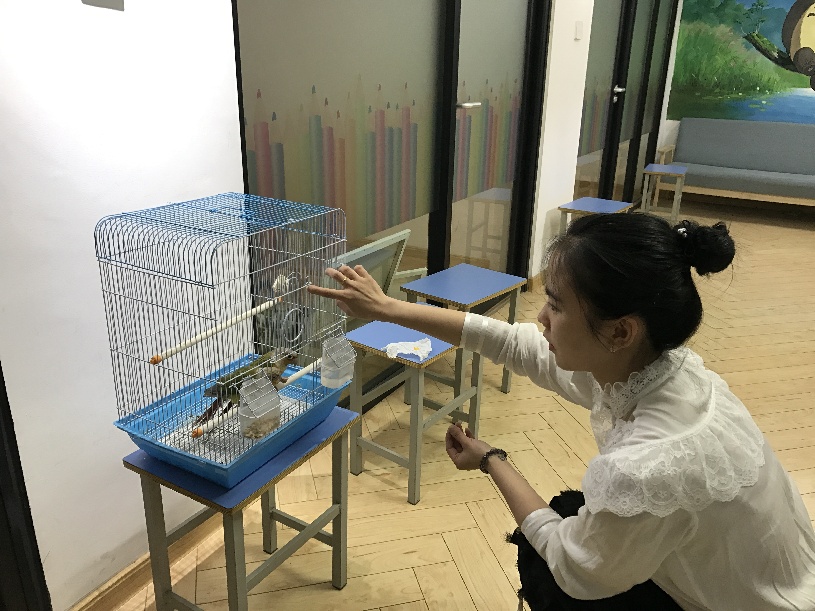
Photo taken on May 22, 2019 shows the bulky horned frog raised by Xu Zhibin in China's Gansu province. (Xinhua)
LANZHOU, July 14 (Xinhua) -- For Xu Zhibin, 28, home is a place of love and comfort, and also where her two bulky horned frogs, two parrots and spider live.
Xu, owner of an art studio in Lanzhou, capital of northwest China's Gansu Province, delved into the hobby of raising exotic pets six years ago.
Her favorite pet was a late ferret. As a nocturnal animal, it often slept in its cage during the day and came out for food at night. "He was a lovely and quick-witted creature, and I enjoyed spending time with him after work," she said.
"As the pace of life is getting faster and faster, unusual pets are easier to keep than cats and dogs and can bring more colors into my life," Xu said.
Xu's friend Zhao Lu has raised an emerald-green horned frog for two years. "The adorable frog makes me feel excited and unique," she said.
Xu and Zhao are among a growing number of young Chinese who are keeping non-traditional pets -- from snakes and frogs to chameleons and miniature pigs.
Behind the booming exotic pet spending is China's fast growing pet market.

Photo taken on May 22, 2019 shows Xu Zhibin and her parrots in China's Gansu. (Xinhua/Cheng Nan)
An industry report by the website Goumin, one of the biggest online communities for pet owners in China, said the market value of the pet industry had reached 170.8 billion yuan (around 24.8 billion U.S. dollars), and was estimated to reach 200 billion yuan in 2020.
According to the report, there are 73.55 million Chinese pet owners in urban areas, with the post-1980s and post-1990s generations accounting for 75 percent.
"I have sold more than 60 ferrets since the beginning of the year, with the price from 2,000 yuan to 4,000 yuan each," said Li Junqiang, a pet store owner in Lanzhou. "Most of the buyers are young people."
Niu Fang, a sociologist with Lanzhou University, said the exotic pet craze showed the psychological needs of Chinese young eager for companionship and to display their unique personality.
However, experts also warned that these unusual pets may pose risks. Niu pointed out that some non-traditional pets are wildlife or even invasive species which could impede wildlife conservation and damage the ecological environment.
In July, Qingdao customs in east China's Shandong Province seized 12 living adult ants and 10 ant eggs in a parcel mailed from Australia. An investigation revealed that the ants were originally scheduled to be kept by the recipient as pets.
"They may also present a grave theat to human health," Niu said, warning pet owners not to bring pets such as spiders to public places.



